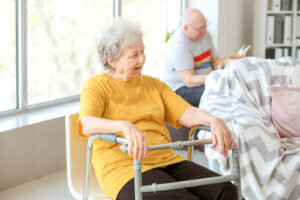Call Us : +1 (626) 798-0558

Senior Caregiving Tips For Cold Months

Senior Care
Many parts of the country experience real cold temperatures and this can be especially risky for seniors. Without proper care, seniors can experience significant health complications which can even prove fatal due to frigid conditions. One of the main concerns at times of extremely cold temperatures is safety and therefore, planning and preparation are very much important for senior caregivers, seniors, and the complete care team supporting the seniors.
Some of the safety tips shared by experts in senior care and senior living can be helpful for you at times of extremely cold weather.
- Closely monitor the news for upcoming storms. Having information about the weather can help you prepare for serious changes in weather conditions.
- Replenish emergency supplies like water, blanket, batteries, prescription medications, any special equipment required by the senior, and have a plan to tackle power outages.
- Limit outside activities to a minimum. This is because minimizing exposure to harsh weather is necessary to preserve energy.
- Ensure necessary precautions with alternative heating sources and make sure to avoid dangerous heat sources like gas stoves. Also, closely monitor space heaters and fireplaces.
- Make sure to dress appropriately if you wish to move out. Provide necessary protection to extremities and dress in layers. In addition, be aware if clothing becomes wet outside, as this can result in frostbite.
- After returning, look for any sign of frostbite, numbness, or hyperthermia. Prolonged subjection to cold weather conditions can cause hyperthermia. Seniors who are diabetic may not understand that the numbness they experience is frostbite. Also, be aware of your senior loved one is drowsy or confused.
- Keep track of existing health conditions in seniors to find out if they are worsening. For instance, seniors with arthritis might struggle more with mobility issues and pain and people with asthma can experience increased respiratory problems.
- Check pipes in the home to see if they are freezing. Ensure that your senior loved one knows how to secure the pipe if it bursts.
- Always maintain a list of emergency contact numbers in a place that is prominent and accessible. You may also include the contact numbers of family and friends living in nearby towns or states in the event you need to travel.
These are a few senior caregiving safety tips for colder months. Make sure to share these tips with senior caregivers, seniors living alone, friends, and family.
